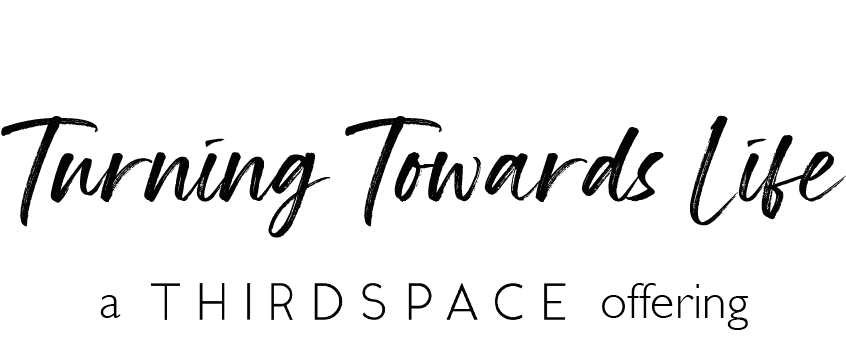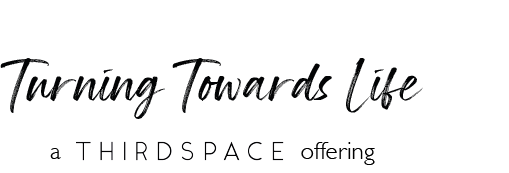Myths That Keep Us From Our Lives, Episode 358
Exploring three common protective myths people use to cope with life's uncertainties. How these myths, while intended to provide comfort, often amplify the very isolation and fear we want to avoid, and rarely help us as much as we think they will.
How we might come to examine our own protective stories, opening the possibility of softening them so we can remember our inherent qualities, such as creativity and courage, especially in challenging moments, engage more authentically with life and cultivate deeper connections with others.
This week's Turning Towards Life is hosted, as always, by Lizzie Winn and Justin Wise of Thirdspace.
Join Our Weekly Mailing: www.turningtowards.life/subscribe
Support Us: www.buymeacoffee.com/turningtowardslife
Here’s our source for this week:
Myths That Keep Us From Our Lives
At the times when the world has shrunk to its smallest horizons, when I have felt most despairing, desperate, or alone, or when I have found myself working and pushing much too hard, it usually turns out that I have been living in thrall to one or more protective myths about life that rarely help as much as I imagine.
Myth 1 – I’m not like other people
I’m not really a person, but other people are. Others’ lives are complete in ways that mine is not. Other people know where they’re going, while I am lost. Other people made the right choices, while I stumbled. Other people aren’t as confused as I am. Other people don’t suffer as I do.
Underpinning this myth is a great deal of negative self-judgement, which fuels a sense of deflation, self-diminishment or self-pity. But it can equally be worn as a mask of grandiosity, in which I puff myself up with certainty and arrogance. Sometimes I bounce between the two poles, from deflation to grandiosity and back again.
This is the myth of specialness. It boosts our self esteem by giving us a reason for all the difficulty we’re experiencing. And protects us from feeling the suffering of others by keeping us at a distance from everyone and everything.
Myth 2 – Death has nothing to do with me
Somehow I’m separate enough from the real world that death is not an issue for me in the way it is for others. It’s frightening but far-off, a rumour, something that happens to other people. Consequently, I need pay it little real attention. I can ignore what my body tells me, and what my heart tells me. I’m protected from seeing that my time is finite and that I have to decide in which relationship to life I wish to stand.
This is the myth of no consequence. It saves us from the burden of having to choose, or face the uncertainty of our choices in a world in which choices matter because our time is limited.
Myth 3 – A saviour is coming
If I’m good enough, popular enough, loved enough, successful enough, recognised enough, powerful enough, rich enough, famous enough, caring enough… then I’ll be saved. Someone – one of the grown-ups in the world – will see me and, recognising my goodness, rescue me from my troubles
And then I won’t have to face them any more.
This keeps me working really hard. Sometimes it has me try to save others in the very same way that I am desperate to be saved.
This is the myth of dependency. By rendering us helpless it keeps us from taking on the full responsibility (and possibility) of our own adulthood.
—
I know these are not myths I carry alone.
We cling onto these myths because, as well keeping us at a seemingly safe distance from our lives, we’re afraid that if we face the true situation of our lives then our troubles will be magnified. But, as with any turning away from the truth, they come at an enormous cost. In particular they keep both our dependency and our hopelessness going.
When we can learn to see them and begin through them, we give ourselves the opportunity for a much more direct, unmediated contact with our lives and with others. We might begin to discover deep sources of hope, courage and compassion which which we had been out of touch. And as we allow ourselves to step out of hiding and into relationship, we might discover that our capacity to help others – and to be helped by them in return – is greater than we could have imagined.
Photo by Justin Wise

